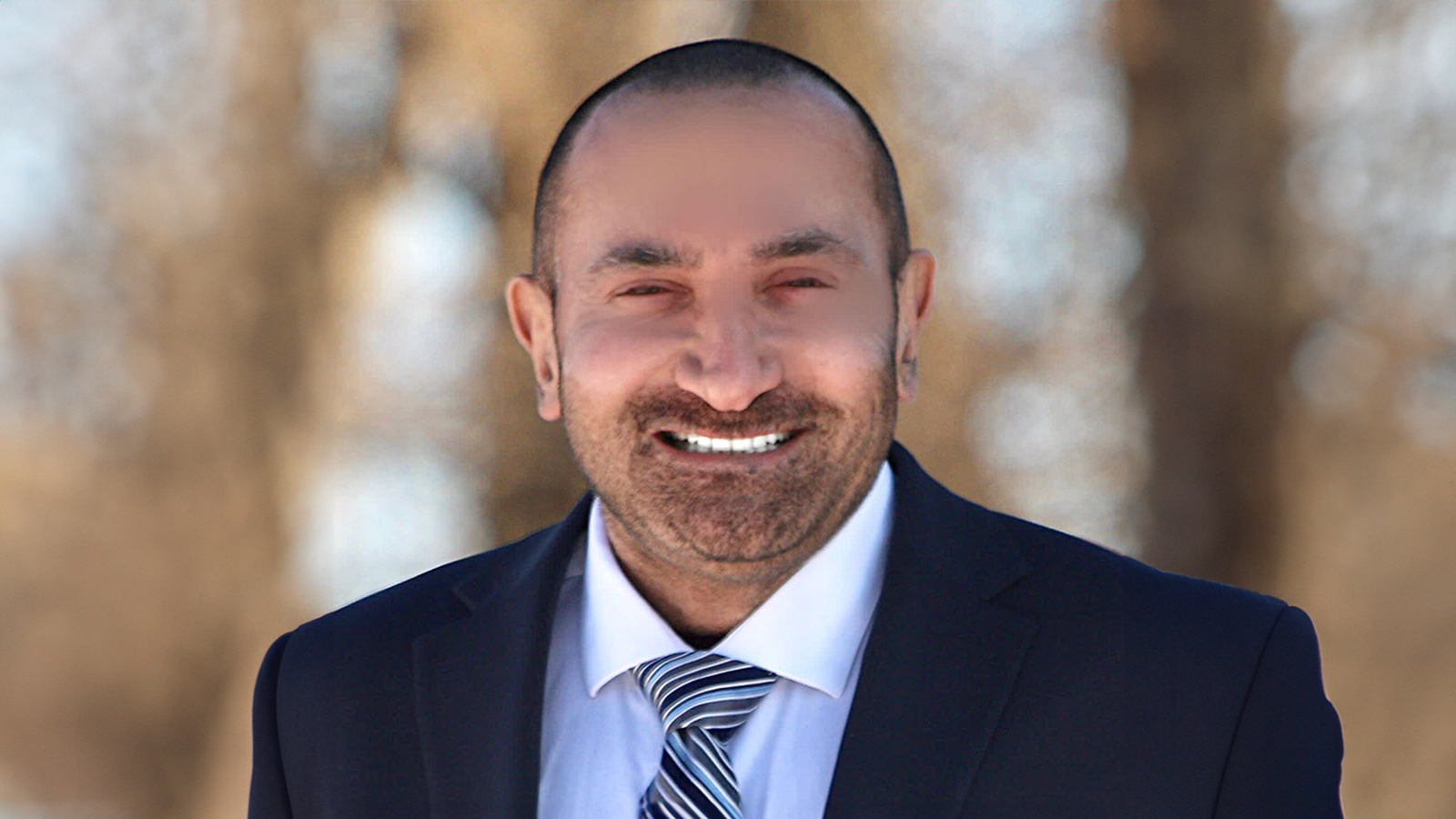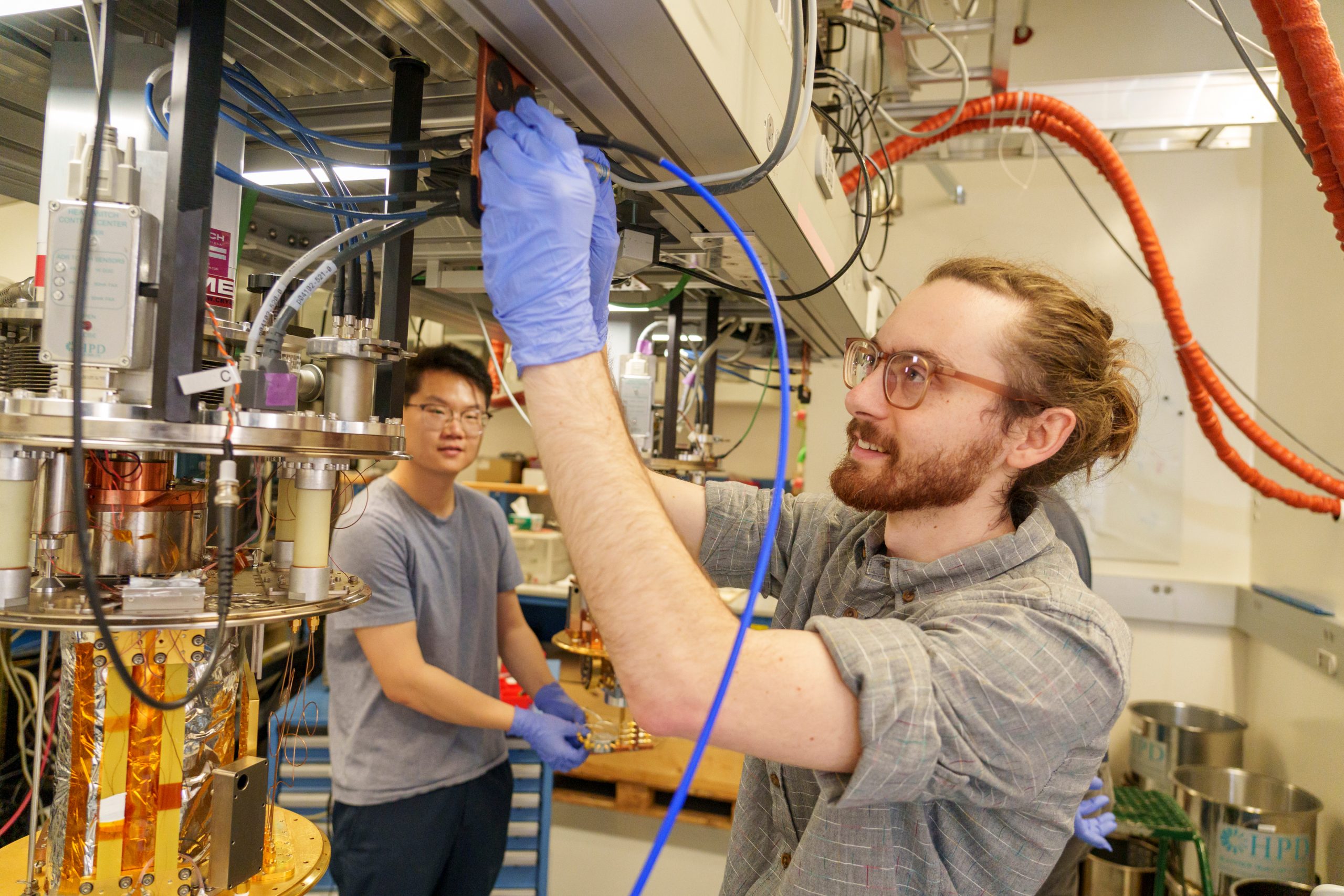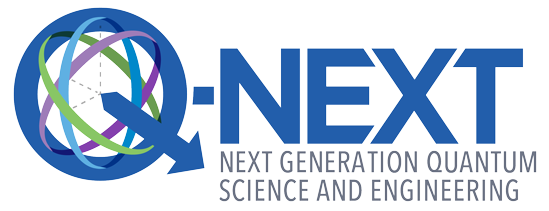quantum computing
-
The consequences of removing the world largest dam, and building a quantum computer using sound waves
From the Science Podcast: University of Chicago's Andrew Cleland discusses his work on using the phonon as the basis of quantum computing. Read More
-
Run Superstaq to boost quantum computing performance — with Infleqtion
From the Post-Quantum World podcast: Host Konstantinos Karagiannis chats with Infleqtion's Pranav Gokhale about improving the performance of quantum computing programs by orders of magnitude by modifying just one layer of the computing stack. Read More
-

Pushing the quantum frontier for finance: JPMorgan Chase’s Marco Pistoia
An institutional partner of the Q-NEXT quantum research center, JPMorgan Chase is advancing quantum technologies for the financial sector while collaborating with other organizations to push the quantum frontier for all. Read More
-
UChicago scientists make new discovery proving entanglement is responsible for computational hardness in quantum systems
From the University of Chicago: In a groundbreaking paper published in Physical Review Letters, a team of scientists led by William Fefferman from the University of Chicago has found a computational problem in which entanglement is directly responsible for a dramatic quantum computational speedup over any efficient classical algorithm. Read More
-
Sound is manipulated for quantum information processing
From Physics World: University of Chicago's Andrew Cleland and team show how sound can be used to create two quintessentially quantum effects: superposition and interference. As a result, sound-based technologies could soon be used to create quantum computers. Read More
-
How splitting sound might lead to a new kind of quantum computer
From The Conversation: Andrew Cleland of the University of Chicago writes about using beam splitters to explore the quantum properties of phonons. His findings could lead researchers to use phonons to build a new type of quantum computer. Read More
-
Quantum computers could break the internet. Here’s how to save it
From Science News: Q-NEXT Director David Awschalom and student Nolan Bitner are featured in this article on quantum cryptography and a future quantum internet. Read More
-
How spectator qubits can reduce noise in quantum computers
From AZo Quantum: In a Q&A, the University of Chicago's Hannes Bernien talks about his research on noise-reduction in quantum computers through spectator qubits. Read More
-

Argonne and UChicago PME researchers “split” phonons – or sound – in step toward new type of quantum computer
In two experiments, a research team led by Andrew Cleland uses an acoustic beam splitter to demonstrate the quantum properties of phonons. The experiments are first of their kind and could lead to new advances in computing Read More
-
Sound-based quantum computers could be built using chip-sized device
From New Scientist: A crucial building block for quantum computers based on sound has been shown to work for the first time. Andrew Cleland at the University of Chicago have built a chip-sized device that can manipulate particles of sound in a way that mimics how particles of light are used in light-based quantum computers, opening the door for building sound-based quantum computers. Read More
In the News
See all In the News-
The best qubits for quantum computing might just be atoms
From Quanta: Mark Saffman of the University of Wisconsin–Madison and Infleqtion is featured in this comprehensive overview of neutral-atom qubit research. Read More
-
How quantum computing could help us understand the universe
From PBS NewsHour: David Awschalom appears in this piece on the next generation of computing, one that will be far more sophisticated and dependent on understanding the subatomic nature of the universe. Read More
-
PME-led research into protein-based qubits earns $2.75M Moore Foundation grant
Bolstered by a new $2.75 million grant from the Gordon & Betty Moore Foundation, a team led by University of Chicago's Peter Maurer will soon study qubits made from protein. Read More
-
Infleqtion unveils 5-year quantum computing roadmap, advancing plans to commercialize quantum at scale
From Quantum Insider: Infleqtion shares a broad business update, including the first look at its new 5-year quantum computing roadmap. The roadmap's centerpiece is Sqorpius, the next phase of Infleqtion’s quantum computing program. Read More
-
Bringing quantum entanglement to the people
From the National Science Foundation: NSF’S Quantum Leap Challenge Institute Hybrid Quantum Architectures and Networks at the University of Illinois Urbana-Champaign, a Q-NEXT partner, has created a working demonstration that brings entanglement between photons to a public setting for the first time. Read More
